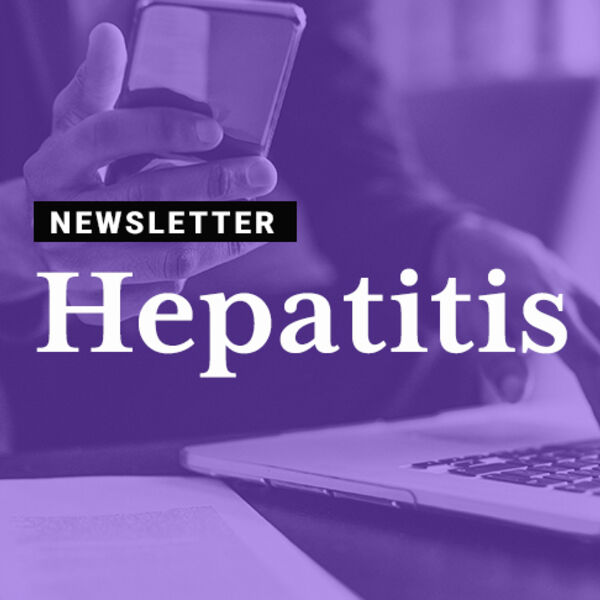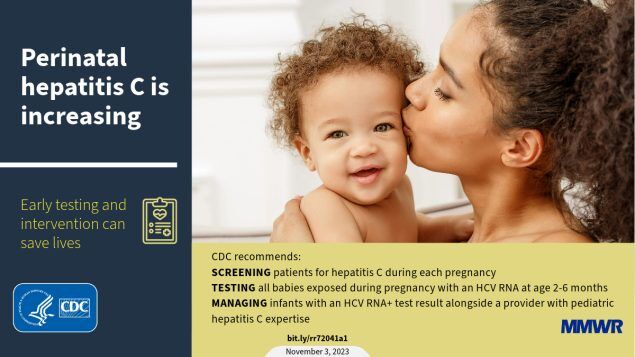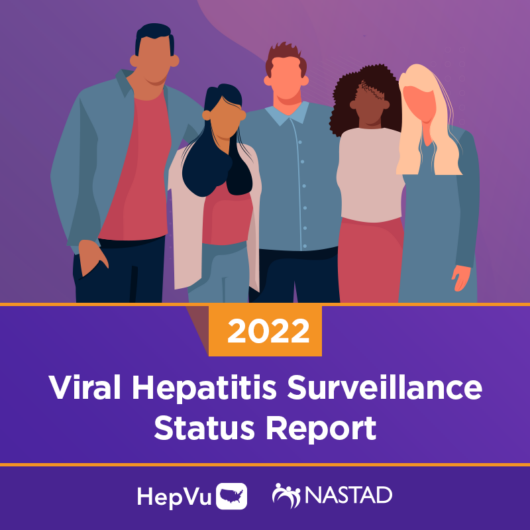
Hepatitis Happenings and Updates
NASTAD Updates
Unlocking HCV Care in Key Settings Report
This past September “Unlocking HCV Care in Key Settings” virtual summit, highlighted different models for integrating hepatitis services in four key settings (opioid treatment programs, corrections, federally qualified health centers, and syringe service programs). A summary report is now available, with considerations for implementing hepatitis services in the key settings and resources. Click here to access the recordings, slides, and summary report.
Upcoming NASTAD-led Work Group Calls
Updated workgroup meeting dates and times are listed below. Please be sure to register for the workgroups you would like to attend. If you would like to join the Hepatitis Workgroup calls email Zakiya Grubbs (zgrubbs@nastad.org) or Isabel Lechuga (rlechuga@nastad.org), or the Newer Hepatitis Staff calls email Jasmine West (jwest@nastad.org).
Outbreak Detection Planning Work Group
Collaborative space for jurisdictions to discuss developing and implementing an outbreak response plan for Hepatitis A, B, and C. Jurisdictions can share best practices and outbreak response activities, including monitoring surveillance data to identify outbreaks.
- Schedule: Monthly calls every fourth Tuesday from 3:30 - 4:30 PM ET
- Upcoming dates: January 23, 2024, featuring Florida
- Intended audience: Health department prevention and surveillance staff working on developing and implementing an outbreak response plan as a part of PS 21-2103 Component 1 grant activities.
- Registration: https://nastad.zoom.us/j/84875059553
Hepatitis Workgroup Calls
Bimonthly call to discuss recent hepatitis updates. Each meeting includes updates on hepatitis advocacy and policy, and drug user health. Participants are encouraged to send in Hot Topics for discussion to hepatitis@nastad.org prior to the meeting. For the meeting link, please email Zakiya Grubbs (zgrubbs@nastad.org) or Isabel Lechuga (rlechuga@nastad.org).
- Schedule: Bimonthly calls every first Tuesday from 2:00 - 3:00 PM ET
- Upcoming dates: February 6, April 2, June 4, 2024
- Intended Audience: Closed to health department prevention and surveillance staff.
Hepatitis C Linkage to Care Workgroup
This workgroup, led by Amelia Salmanson, Utah Viral Hepatitis Coordinator and HepTAC consultant, is a space to share best practices and learn from other jurisdictions about DIS, linkage to care, and patient navigation.
- Schedule: Quarterly calls from 3:00 - 4:00 PM ET
- Upcoming dates: February 15, May 16, August 15 2024
- Intended Audience: Health department prevention and/or surveillance staff working on HCV linkage to care.
- Registration: https://nastad.zoom.us/meeting/register/tZwtfuCgpjMpGtIaEJBAq0HeBp0Rsf6I-KF-
Perinatal Surveillance and Case Management Workgroup (new!)
For jurisdictions looking to start or have previously established a perinatal hepatitis surveillance and case management program, this space is for sharing challenges and breakthroughs. Discussion topics include identifying cases within existing surveillance, developing a registry, infant follow-up testing and case management, and provider outreach.
- Schedule: Bimonthly, then quarterly calls from 3:00 - 4:00 PM ET
- Upcoming dates: February 22, April 11, June 20, September 19, 2024
- Intended Audience: Health department prevention and/or surveillance staff working on perinatal hepatitis B and C surveillance and case management.
- Registration: https://nastad.zoom.us/meeting/register/tZArd-6tqDgrH9F9M64LUFClne5d2Ldbmiec
Newer Hepatitis Staff Calls
These calls are being restructured in 2023 and are open to all new hepatitis health department staff who started their roles in the respective quarter of the call date. Attendees will have the opportunity to meet-and-greet others and familiarize themselves with NASTAD’s Newer Hepatitis Staff Toolkit. Reach out to Jasmine West (jwest@nastad.org) to be added to the invitation.
- Schedule: Quarterly calls from 2:00 - 3:00 PM ET
- Upcoming dates: March 18, June 24, September 23, 2024
- Intended Audience: Newer hepatitis program staff (e.g. program coordinators, surveillance staff, etc.)
VLC recordings/upcoming sessions
The VLC will resume in 2024 starting on February 7. Additional information will be forthcoming.
The November VLC sessions: “Updates to acute and chronic hepatitis B case definition” with presentations by Symone Richardson and Meredith Lichtenstein-Cone, CSTE, Genny Grilli, Minnesota Department of Health, and Alan May, Arkansas Department of Health; and “Health systems assessment: Implementation and follow-up activities” with presentations by Danica Kuncio, Philadelphia Department of Health and Catheryn Van Cleve, Maryland Department of Health, can be viewed here.
We are looking for speakers to share their viral hepatitis expertise during the Virtual Learning Collaborative Year 3. Please indicate on this form which dates and topics you are interested in presenting or moderating. Thank you!
Please visit the VLC microsite for more information and to watch recordings from previous VLC sessions.
Additional Updates
Sex Worker Health & Harm Reduction TA Calls
The NASTAD Sex Worker Health and Harm Reduction Workgroup and NASTAD hosts a bi-monthly call for harm reduction programs and SSPs serving or interested in expanding services for people engaged in sex work. This call series is intended to serve as a space to facilitate connections and resource sharing, encourage peer support, offer TA and capacity building, and raise priorities of sex worker health in relation to harm reduction with national partners. The Sex Worker Health and Harm Reduction TA call is a component of the CDC-funded National Harm Reduction TA Center. At this time, calls are reserved for community-based organizations including drug user health programs and SSPs serving or interested in expanding services for people engaged in sex work. This call series is co-facilitated by regional consultants with support from the NASTAD Drug User Health team. Join us on the 2nd Tuesday of every other month, 2:00 - 3:00 PM ET. Please contact DrugUserHealthTA@NASTAD.org for more information.
Please contact DrugUserHealthTA@NASTAD.org for more information.
Hot Topics: HepTAC TA Requests
We have received a few TA requests and we are requesting your assistance:
- If you have worked with your state drug and alcohol authority on the State Opioid Response grant to implement hepatitis services, please reach out to us to share your experiences
- We are in the process of developing an adult hepatitis immunization resource and want to know what you all would like to be included. Please fill out the survey here or reach out to us directly.
- Examples of viral hepatitis outbreak detection and response plans
If you have any information on the above TA requests, please email hepatitis@nastad.org. Thank you!
Our team aims to send out a monthly newsletter to streamline hepatitis communications. If you know someone who would benefit from signing up or if you would like to be unsubscribed from the monthly newsletter, please email us at hepatitis@nastad.org. We apologize if you emailed us and haven’t heard back, please email us again!
Partner Updates
Updated CDC Perinatal Testing Recommendations
Given the rise of acute hepatitis C cases among reproductive-age persons, CDC has recently updated its perinatal HCV testing recommendations. The report has four recommendations:
- HCV testing of all perinatally exposed infants with a nucleic acid test (NAT) for detection of HCV RNA at age 2–6 months;
- consultation with a health care provider with expertise in pediatric hepatitis C management for all infants and children with detectable HCV RNA;
- perinatally exposed infants and children with an undetectable HCV RNA result at or after age 2 months do not require further follow-up unless clinically warranted; and
- a NAT for HCV RNA is recommended for perinatally exposed infants and children aged 7–17 months who previously have not been tested, and a hepatitis C virus antibody (anti-HCV) test followed by a reflex NAT for HCV RNA (when anti-HCV is reactive) is recommended for perinatally exposed children aged ≥18 months who previously have not been tested.
These recommendations acknowledge that about 70% of infants who are exposed to hepatitis C are not tested and are lost to follow-up. These recommendations build on prior recommendations for universal HCV screening for all adults and screening with each pregnancy. The MMWR article, which covers the epidemiology, methods, and rationale for these recommendations, can be found here.
2022 Viral Hepatitis Surveillance Status Report
HepVU and NASTAD recently released the second iteration of the Viral Hepatitis Surveillance Status Report for 2022. This report assesses the capacity of health department viral hepatitis surveillance programs to perform critical surveillance functions and support viral hepatitis elimination activities and highlights the need for increased funding and resources. Key areas of growth include the increase in the number of jurisdictions with a viral hepatitis elimination plan from 43% in 2021 to 70% in 2022 and the number of jurisdictions with one FTE increased from 68% in 2021 to 80% in 2022. The recording from the briefing can be found here. Also included with the report is a toolkit with sample social media posts and infographics to support advocacy efforts.
Resources
Hepatitis C Online 4th Edition Update
Launched November 1, the 4th Edition of Hepatitis C Online Treatment of Hepatitis C Infection Module features two new lessons on simplified HCV treatment for all HCV genotypes and retreatment of patients with prior HCV treatment and two updated lessons on how to treat persons with cirrhosis or acute HCV infection. Registered learners can earn free CME, CNE, and pharmacology CE for APNs even if they previously earned CE from the 3rd Edition. The website will roll out 4th Edition modules through Spring 2024.
Hepatitis C Online is a free educational resource for healthcare professionals to learn about HCV diagnosis, treatment, and prevention. It is solely funded by the Centers for Disease Control and Prevention (CDC) Cooperative Agreement (CDC-RFA-PS21-2105).
Upcoming Webinars/Meetings:
Upcoming Meetings
CSTE Viral Hepatitis Subcommittee Meetings | First Thursday, every other month at 3 PM ET
The Viral Hepatitis Subcommittee comprises epidemiologists, program coordinators, and others interested in viral hepatitis surveillance and epidemiology. The purpose of this subcommittee is to inform and improve practices related to viral hepatitis surveillance and data analysis in local, state, tribal, and territorial settings, as well as build epidemiologic capacity and support partnerships related to viral hepatitis surveillance. The subcommittee is also charged with reviewing and developing national position statements on viral hepatitis-related topics, including standardized surveillance case definitions.
The Viral Hepatitis Subcommittee holds regular conference calls and webinars to discuss current issues and overarching topics related to viral hepatitis surveillance, such as best practices and lessons learned across jurisdictions, policy around viral hepatitis surveillance, and analyzing viral hepatitis data. For more information, click here.
Conferences/Events (National & Local)
National Viral Hepatitis Meeting
April 16-17, 2024 | Atlanta, GA
This national meeting, being organized by the Association of State and Territorial Health Officials (ASTHO) with support from the Centers for Disease Control and Prevention (CDC), will be an exciting in-person connection opportunity for partners working in viral hepatitis at the state, local, territorial, federal and national levels. The meeting will provide a venue for dialogue and exchange of expertise on topics such as hepatitis surveillance, prevention program planning and implementation, and outbreak detection and response. This meeting is geared towards Integrated Viral Hepatitis Surveillance and Prevention Funding for Health Departments (IVHSP) recipients. Additional information will be forthcoming.
National Latinx Conference on HIV, HCV, and SUD
May 2-4, 2024 | El Paso, TX
The National Latinx Conference on HIV/HCV/SUD aims to create opportunities to share information and efforts around health disparities that negatively impact the Latinx population such as Human Immunodeficiency Virus (HIV), Hepatitis C (HCV) and Substance Use Disorder (SUD), by bridging the varied disciplines of education, advocacy, and clinical care. Thus, creating better health outcomes for the Latinx population. Register here.
NASTAD National HIV and Hepatitis Technical Assistance Meeting
Save the Date: October 16-18, 2024 | Omni Shoreham Hotel, Washington, DC
Jobs, Fellowships, and Funding Opportunities:
Apply Now for Funding on Projects To Reduce Healthcare-Associated Infections and Antibiotic Resistance
AHRQ is funding innovative research proposals to prevent healthcare-associated infections (HAIs) and combat antibiotic-resistant bacteria (CARB). Applications are due Jan. 25 for demonstration and dissemination projects (R18) and Feb. 5 for large research projects (R01). HAI projects in both grant categories should demonstrate new ways to detect, prevent, and reduce HAIs. CARB projects should address ways to promote appropriate antibiotic use, reduce the transmission of resistant bacteria, or prevent HAIs. The funding is available to support research in all healthcare settings: long-term care, ambulatory care, acute care hospitals, and those focusing on transitions between care settings. AHRQ encourages potential applicants to consider research in healthcare delivery areas with demonstrated health inequities and to address those equity issues in their proposed projects.
Publications
Egypt Wiped Out Hepatitis C. Now It Is Trying to Help the Rest of Africa
Why testing newborns is critical for U.S. fight against hepatitis C




